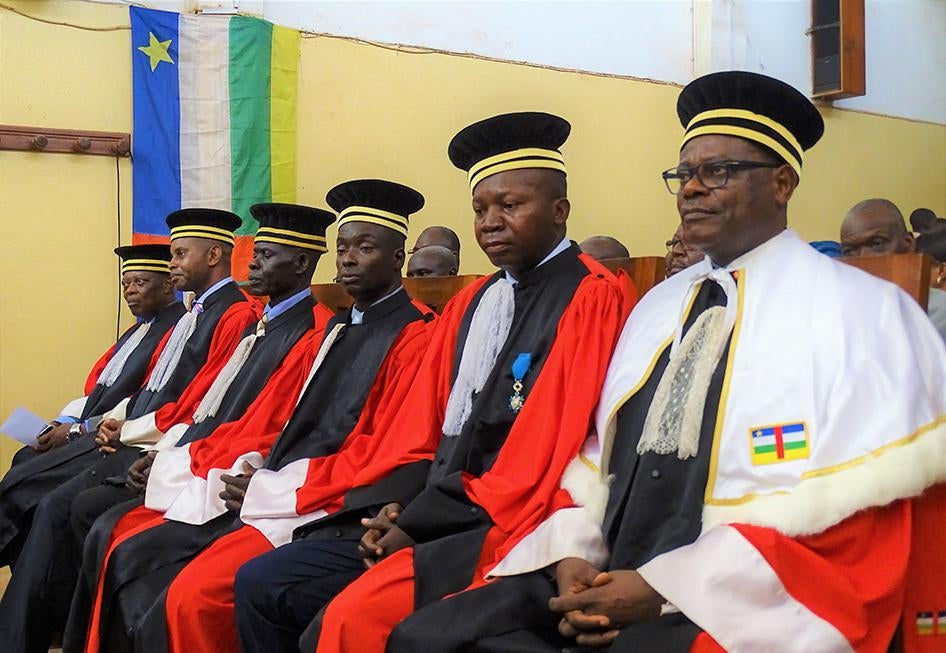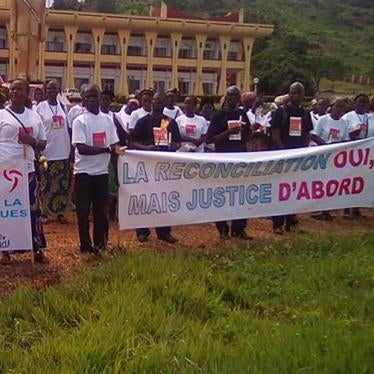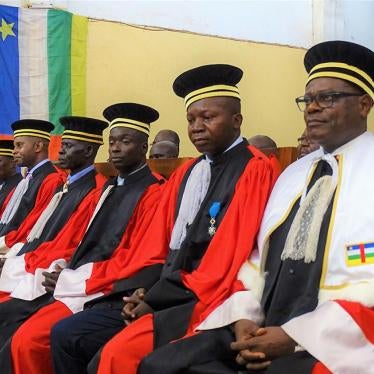Governments across Africa should take note of developments in the Central African Republic to deliver justice to victims of grave crimes committed in the country.
The Special Criminal Court (SCC), established in 2015, is a domestic court that operates with significant international support. The court is staffed by international judges, prosecutors, and administrators, who work alongside practitioners from the Central African Republic. The United Nations is contributing to the court’s security, staff recruitment, the training of investigators, and witness protection. (We examine the court in a report released last week.)
Too often, countries that suffer widespread atrocities lack the capacity or the will to try such crimes. The SCC is an example of how governments can demonstrate commitment to victims by teaming up with international partners to work to overcome the challenges. Also, trials at – or close to – home can have more impact and resonance than trials in distant courthouses.
Trying war crimes and crimes against humanity in the Central African Republic will not be easy. The court will need to manage security challenges—armed groups still control large parts of the country and violence has recently resurfaced in the capital, Bangui. The court also needs far more funding from donors to succeed.
The court has made important progress. Key staff – including the special prosecutor, chief registrar, investigators, and judges – are now in place and working out of make-shift premises in Bangui. Outreach about the court’s work with local communities has begun. If the court can conduct credible prosecutions of atrocities, it would represent a major break from the country’s troubled history of violence driven by impunity.
The SCC will also operate alongside the International Criminal Court (ICC). The ICC has two investigations in the Central African Republic, which were referred by the government, and is likely to prosecute a few highest-level perpetrators.
The SCC will not be a cure for all that ails the Central African Republic, but it could help put the country on the right track. Lack of justice is fueling further crimes there, as it has in many different countries. To achieve lasting peace, accountability for the many grave international crimes that civilians suffered is crucial.
Governments across the globe who need to grapple with grave crimes committed in their countries should see the SCC as a model they can explore to hold their perpetrators to account.










